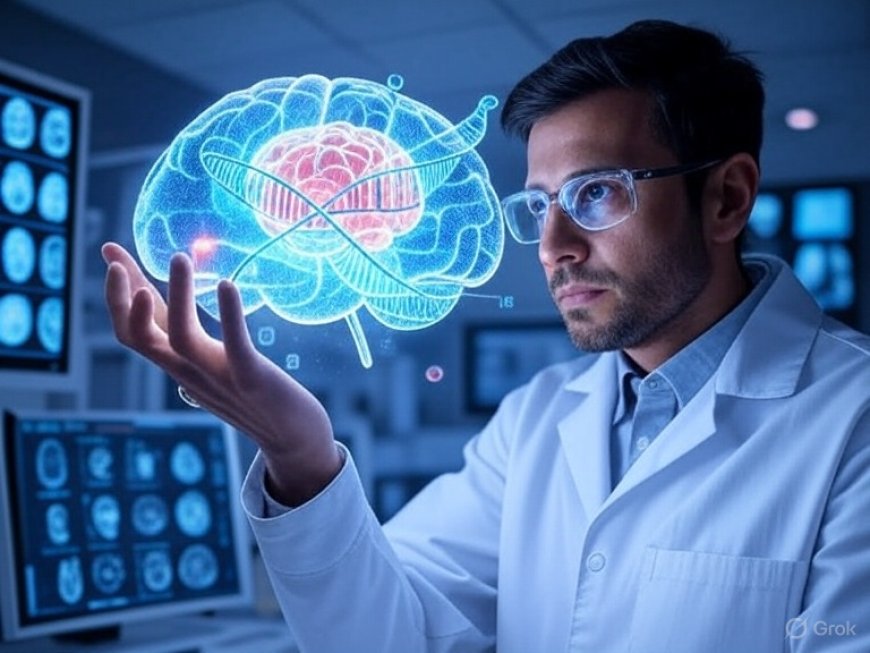Brain Editing Breakthroughs: Ethical Dilemmas in Gene-Altering Tools for Deadly Disorders
A forward-looking report on breakthroughs in brain gene editing for deadly neurological disorders, featuring U.S. trials, patient stories, and ethical debates.

In laboratories across the United States, scientists are pushing the boundaries of medicine by using advanced gene-editing tools on the human brain. What was once the stuff of speculative science fiction is now the subject of federally approved trials aimed at treating some of the most devastating neurological disorders.
These developments, while groundbreaking, have also ignited intense ethical debates. The question is not only whether we can edit the brain at the genetic level, but whether we should.
The Science Behind Brain Gene Editing
The most promising advances are being made through CRISPR-Cas9 and newer, more precise variations such as base editing and prime editing. These tools allow researchers to alter faulty genes that contribute to conditions like Huntington’s disease, ALS, and certain forms of early-onset dementia.
For patients and families, the stakes could not be higher. Early results from trials suggest that gene-editing therapies may slow or even halt the progression of diseases that, until now, had no cure. In some cases, scientists are testing ways to deliver edits directly into the brain through viral vectors, giving cells the ability to repair or silence harmful genetic instructions.
The National Institutes of Health has already backed several high-profile initiatives, framing them as part of a long-term investment in precision medicine. Officials describe the work as a “moonshot for neurology,” where the brain’s own blueprint could one day be rewritten to fend off fatal illness.
Patient Stories: Hope Meets Caution
One of the trial participants, a 42-year-old father diagnosed with Huntington’s disease, described the experience as both terrifying and liberating. “I know the risks,” he said in an interview, “but when the doctors told me there’s a chance my children won’t have to watch me decline like my mother did, I had to try.”
His story echoes that of several families who see gene editing not as an experiment, but as a last hope. Yet even within the patient community, there is division. Some express concerns about unintended side effects, while others fear society may pressure people to undergo procedures before the technology is fully proven.
The Ethical Crossroads
At a roundtable convened by leading ethicists, the debate was as charged as the science itself.
“Altering genes in the human brain is unlike anything medicine has attempted before,” said Dr. Katherine Liu, a bioethicist at Harvard Medical School. “You’re not only treating disease—you’re touching the essence of identity, memory, and cognition.”
Others raised concerns about inequality of access. If therapies cost hundreds of thousands of dollars, will only the wealthy benefit? “We cannot allow a system where some families get to erase deadly disorders while others are left behind,” argued ethicist Michael Torres.
The World Health Organization has issued cautionary guidelines, warning that gene-editing technologies must be tightly regulated, especially when they involve the human germline or the central nervous system. While the current trials focus on treating individual patients, critics warn that opening the door to brain editing may eventually lead to enhancements rather than treatments.
Balancing Progress and Oversight
Proponents counter that strong safeguards already exist. The U.S. Food and Drug Administration reviews all human gene-editing trials, and independent review boards monitor patient safety. “We’re not talking about designer brains,” said one researcher. “We’re talking about giving families a chance against diseases that have destroyed generations.”
Still, the line between therapy and enhancement remains blurry. If gene editing can preserve memory in dementia patients, could it also be used someday to improve memory in healthy individuals? These are the questions ethicists say must be answered now, before technology outpaces regulation.
A Future on the Horizon
For now, brain gene editing remains experimental. Results are preliminary, patient numbers are small, and long-term risks are unknown. Yet the optimism is undeniable. Scientists compare today’s efforts to the early days of organ transplantation—once dismissed as impossible, later hailed as routine.
As one ethicist put it: “Every generation faces a moment where medicine forces us to redefine what it means to be human. This is ours.”
What's Your Reaction?
 Like
0
Like
0
 Dislike
0
Dislike
0
 Love
0
Love
0
 Funny
0
Funny
0
 Angry
0
Angry
0
 Sad
0
Sad
0
 Wow
0
Wow
0








































































